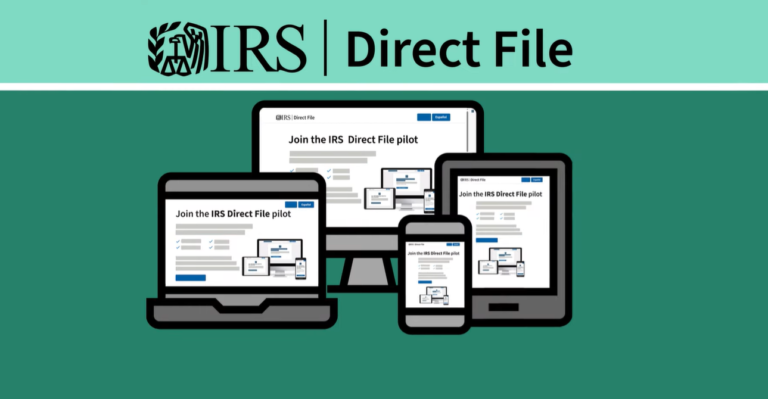How to Manage Rent and Save Big: Proven Strategies to Keep Rent Under 30%
Discover the top strategies to manage your rent, keeping costs under 30% of your income. Unlock practical ways to save, invest, and build wealth faster. Learn the secrets now and take control of your finances.
Key Takeaways
- Rent should not exceed 30% of your income. Spending beyond this can put your financial future at risk.
- Avoid lifestyle inflation as your income grows. The less you spend on rent, the more you can save and invest.
- Creative strategies like finding roommates, moving farther away from expensive areas, or increasing your income can help you stay within budget.
Introduction
Housing is your biggest expense, and it has a major impact on your ability to save, invest, and grow wealth. One rule of thumb that financial experts swear by is to never spend more than 30% of your gross income on rent. If you’re exceeding that threshold, it’s time to rethink your strategy.
Whether you’re living in a high-cost city or have a fluctuating income, managing your rent effectively is essential for your financial health. In this article, we’ll dive into the 30% rent rule, how to apply it, and creative strategies to ensure your housing costs don’t sabotage your long-term goals.
Max Rent Based on Your Salary
What Happens If You Spend More Than 30% on Rent?
Let’s be clear: spending more than 30% of your income on rent will hold you back. You may feel like you’re getting a better apartment or living in a great area, but in reality, you’re boxing yourself into a financial corner.
Here’s why overspending on rent is a problem:
- Limited savings: With too much of your income going to rent, you’ll have less room in your budget for emergency savings or retirement accounts.
- No investment capital: The more you pay for rent, the less you have to invest in wealth-building assets like index funds, stocks, or real estate.
- Living paycheck to paycheck: Spending more than 30% on rent often forces people into living month-to-month with no safety net. One unexpected bill could send you spiraling into debt.
When your rent is within the 30% limit, you create a buffer—enough space to cover expenses and still build wealth. Exceeding that mark leaves you vulnerable.
How Much Should You Spend on Rent Based on Your Income?
Here’s how much rent you should pay based on your gross annual income, following the 30% rule:
| Gross Annual Income | Max Rent (30%) |
|---|---|
| $30,000 | $750 |
| $50,000 | $1,250 |
| $70,000 | $1,750 |
| $90,000 | $2,250 |
| $110,000 | $2,750 |
| $150,000 | $3,750 |
| $200,000 | $5,000 |
If your salary falls somewhere in this range, that’s the most rent you should be paying. Let’s say you’re making $50,000 a year—you shouldn’t be paying more than $1,250 on rent each month. Anything beyond that cuts into your ability to save and invest.
Why Should Rent Be Less Than 30% of Your Income?
The 30% rule is a long-standing guideline in personal finance because it helps you balance your biggest expenses while still leaving room for growth. But why this number specifically?
Here are the reasons:
- It maintains financial flexibility: Keeping rent under 30% leaves you enough wiggle room in your budget for other necessary expenses—utilities, groceries, transportation—and still allows you to save and invest.
- Avoids lifestyle creep: When your housing costs are lower, you’re not tempted to inflate your lifestyle unnecessarily.
- Prepares you for emergencies: With less of your paycheck going to rent, you’re better positioned to handle unexpected expenses, from medical bills to car repairs.
How to Manage Rent in High-Cost Cities (and Stay Under 30%)
Living in a city where rent is sky-high? You might be thinking, “There’s no way I can keep my rent under 30%.” But don’t worry, there are creative solutions to make it work.
Here’s how you can manage rent in expensive areas:
- Move further from the city center: Living downtown may be convenient, but rent is often twice as much. Moving to the outskirts of a city can dramatically reduce your monthly housing costs.
- Get a roommate: Sharing an apartment is one of the easiest ways to cut your rent in half (or more). You’ll still get to enjoy living in a nice area without blowing your budget.
- Boost your income: If reducing your rent isn’t an option, then it’s time to increase your income. Whether it’s picking up a side hustle, working extra hours, or learning a new skill that gets you a higher-paying job, raising your income will help balance out your rent.
These strategies are especially useful if you’re in a high-rent city like New York, San Francisco, or LA.
What Is Lifestyle Inflation and How Can It Destroy Your Wealth?
Let’s talk about lifestyle inflation, one of the biggest threats to your financial success. Lifestyle inflation happens when your spending increases as your income rises. The more you make, the more you spend—whether it’s on a nicer apartment, a new car, or luxury goods.
Here’s how it hurts you:
- Less money for investing: Every dollar you spend on rent or unnecessary upgrades is a dollar that could be building your future wealth.
- Greater financial pressure: Even though you’re earning more, your bills increase, and you end up with the same financial stress, just on a bigger scale.
- Vulnerable to income drops: If your income suddenly decreases, lifestyle inflation leaves you stuck with high expenses and no way to cut back.
To avoid this, keep your rent and living expenses stable even as you earn more. Invest the extra income instead of blowing it on unnecessary luxuries. Your future self will thank you.
Does the 30% Rule Apply When Buying a Home?
Yes, the 30% rule applies to buying a home, too. When you’re calculating whether you can afford to buy, make sure your mortgage payment, including taxes and insurance, is no more than 30% of your gross income.
Banks may approve you for a larger loan than what you can comfortably afford, but that doesn’t mean you should take it. Here’s why you should stick to the 30% rule for homeownership:
- Avoid being house poor: A mortgage that’s too high leaves you with little left over for other expenses or savings.
- Save for maintenance and repairs: Owning a home comes with extra costs that renters don’t deal with, like fixing a roof or replacing appliances. Keeping your housing costs lower will help you cover these surprises without stress.
How Spending Less Than 30% of Your Income on Rent Can Make You Rich
Here’s the secret: The less you spend on rent, the richer you’ll get. When your rent is below 30%, it frees up a ton of money that you can allocate toward things that build wealth, like:
- Investments: Stocks, index funds, or even real estate.
- Retirement accounts: Max out your 401(k) or Roth IRA for future financial security.
- Emergency funds: Having a safety net means you’re protected from unexpected life events.
When you’re not throwing all your cash at rent, you have financial flexibility to pursue bigger goals. The less you pay in rent, the faster you can build wealth and achieve financial freedom.
Conclusion: Smart Rent Management for Financial Success
The bottom line is this: if you want to build wealth, you’ve got to manage your rent smartly. Stick to the 30% rule, keep your lifestyle inflation in check, and find creative ways to cut costs if necessary. Every dollar you save on rent is a dollar you can invest in your future.
By following these strategies, you’ll have a solid foundation for financial independence—and you’ll get there faster than you think.
FAQs
1. What’s the 30% rule for rent?
The 30% rule suggests that you should not spend more than 30% of your gross income on rent. This ensures you have enough left for saving, investing, and covering other living expenses.
2. What if I can’t afford rent under 30% in my city?
If rent is too high, consider moving further from the city center, getting a roommate, or finding ways to increase your income to help balance your budget.
3. How can I avoid lifestyle creep as my income grows?
Keep your expenses stable and invest the extra income rather than upgrading your lifestyle. This will allow you to build wealth faster.
4. Does the 30% rule apply to buying a home?
Yes, your mortgage (including taxes and insurance) should be under 30% of your gross income to avoid financial strain and still have money for other investments.
5. Can I spend less than 30% on rent?
Absolutely! Spending less than 30% on rent will give you even more money to save and invest. The less you spend on rent, the faster you can build wealth.
6. What are the risks of spending more than 30% on rent?
Spending more than 30% on rent leaves you with less for saving, investing, and emergencies. It increases your financial risk and can keep you living paycheck to paycheck.
Talk Resumes with Wealth Waggle
Perfect your resume with AI-assisted feedback and tips (using the latest recruiting intelligence).







